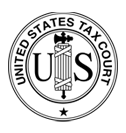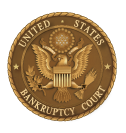WHAT IS BANKRUPTCY?
Bankruptcy is a legal procedure giving debtors federal protection from creditors. Under the bankruptcy code you can protect certain assets, get relief from most debts and enjoy a fresh financial start!
HOW CAN BANKRUPTCY HELP YOU AND YOUR FAMILY?
Filing bankruptcy can wipe out credit card debt and other unsecured debts. Once filed, no creditor can collect on those debts.
Bankruptcy can stop creditor harassment.
Bankruptcy can stop repossession of your car and foreclosure of your home. You may still keep your home even if a foreclosure has already been filed.
Medical debt is discharged through bankruptcy. Overall, medical bills are the main reason in the U.S. for bankruptcy. Hospitals and ER services cannot refuse you service in the future because of your bankruptcy.
WHICH BANKRUPTCY OPTION BEST FITS MY SITUATION?
The most common filings for bankruptcy are Chapter 7 and Chapter 13. Chapter 7 will wipe out all your unsecured debt (credit cards, medical debts, utilities, etc.). In most situations, you can keep your house and vehicle in Chapter 7, as long as your current on payments. Chapter 7 is a straight bankruptcy. Chapter 7 bankruptcy will stop all collection proceedings including phone calls, mailings, garnishments and court proceedings. Most bankruptcy filings in the U.S. are Chapter 7.
Chapter 13 is a repayment plan and is sometimes referred to as a wage earner plan. You must have a reliable source of income. Chapter 13 will stop a foreclosure of a home and/or repossession of vehicles. It is designed to help you catch up on your home and/or vehicle payments if you are behind. You will repay 1% to 100% of your unsecured debt, depending on your individual situation. This will last a minimum of three years and maximum of five years. During this time it will be up to the creditors to file claim in order to be paid during your case.
WHAT DEBTS WILL A BANKRUPTCY NOT ERASE?
Most of your debts can be discharged in a bankruptcy. Some kinds of debt can never be discharged. Call and set up a free consultation if some of the following items are part of your debt picture.
Student Loans – Most student loan debt is not dischargeable. In some situations a debtor can discharge student loan debt if they can prove the debt causes an extreme hardship. This is usually an uphill battle but possible.
Taxes – Some income tax debt can be discharged in bankruptcy, but this varies. Make an appointment to discuss your individual situation.
Alimony and Child Support – Back payments (arrearages), current child support and alimony are non-dischargeable .
Fines and Penalties – Most fines that are imposed by a court and most penalties that are assessed by a government agency are non-dischargeable.
WHAT HAPPENS AFTER BANKRUPTCY?
You can improve your credit after the discharge (or completion) of your case. Through bankruptcy people gain the opportunity to rebuild their credit that without the fling would be much more difficult.
FREE CONSULTATION
Contact Keegan & Company Attorneys at 513-752-3900 to schedule a free consultation with an experienced attorney. Choose one of out convenient offices both with free parking: Eastgate and Middletown, Ohio.








